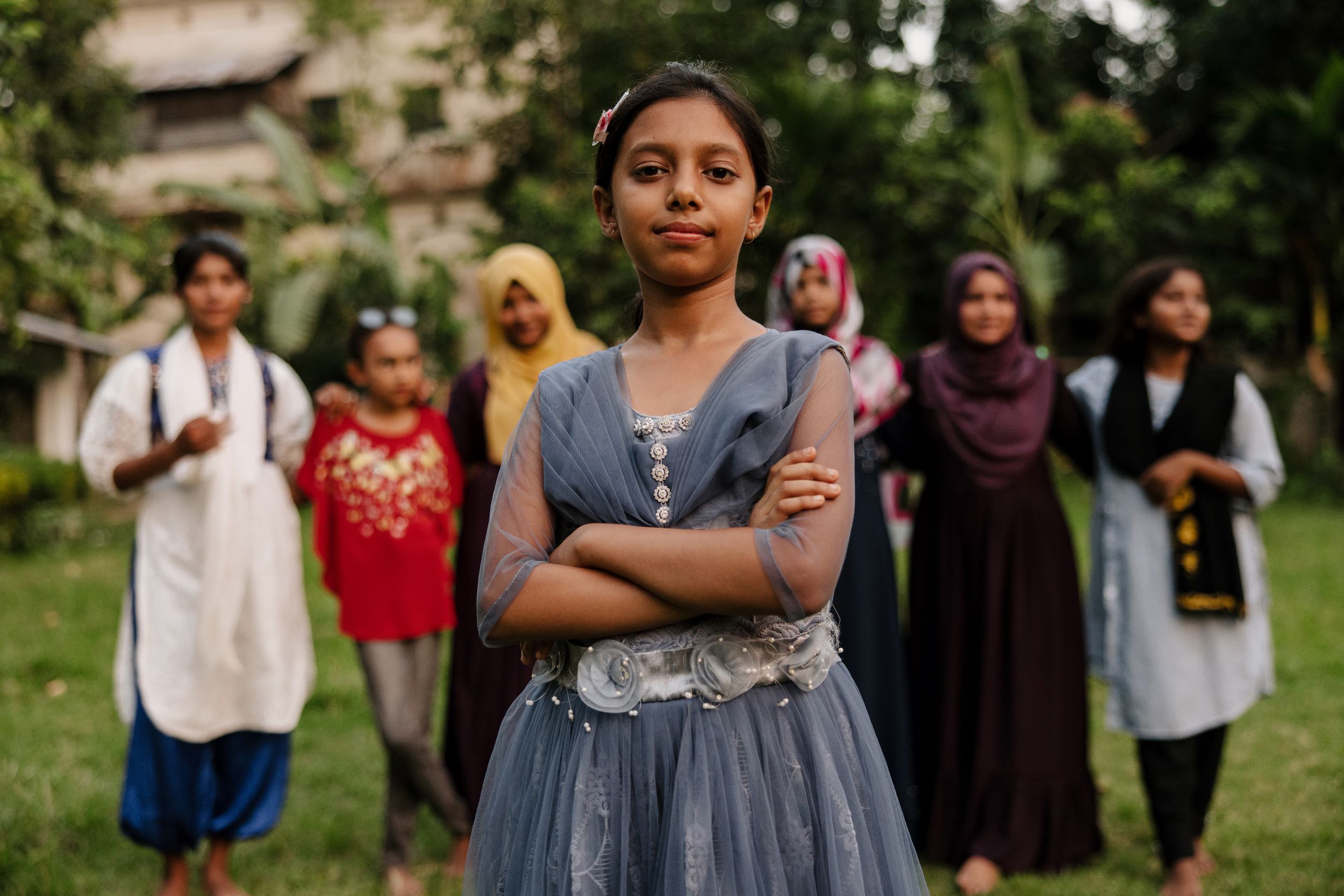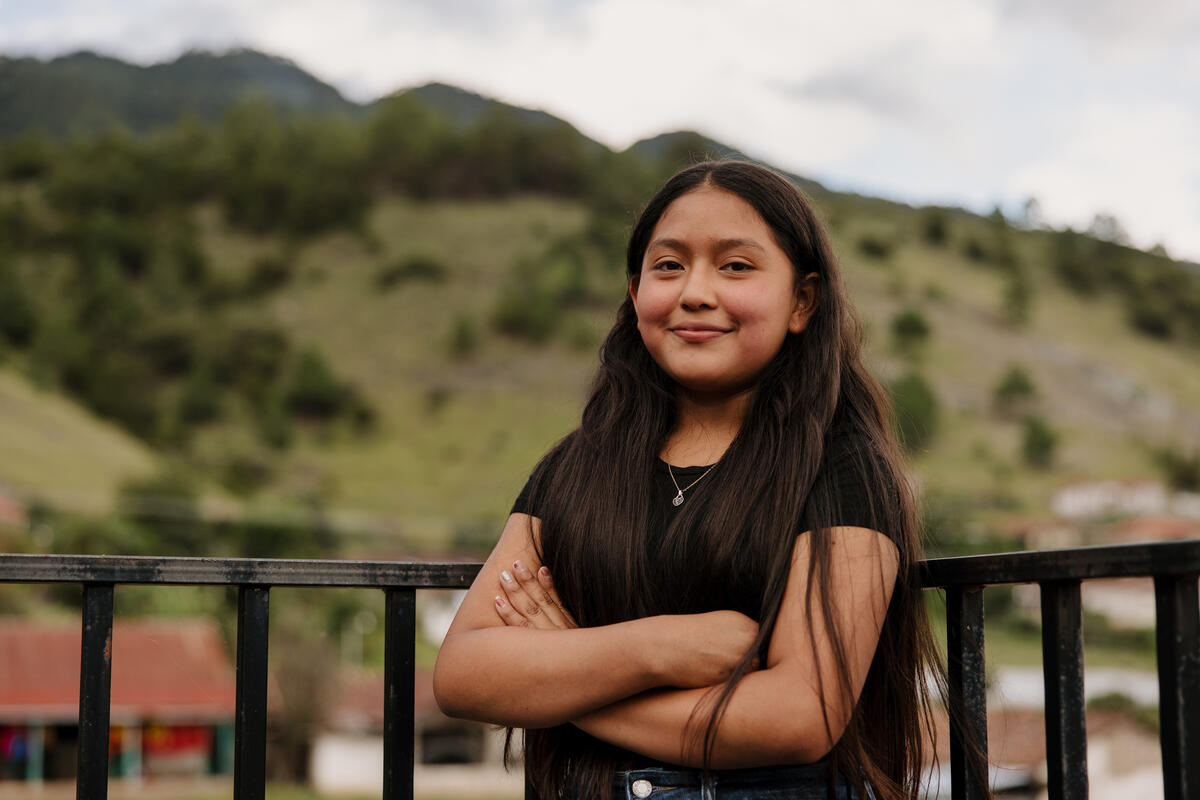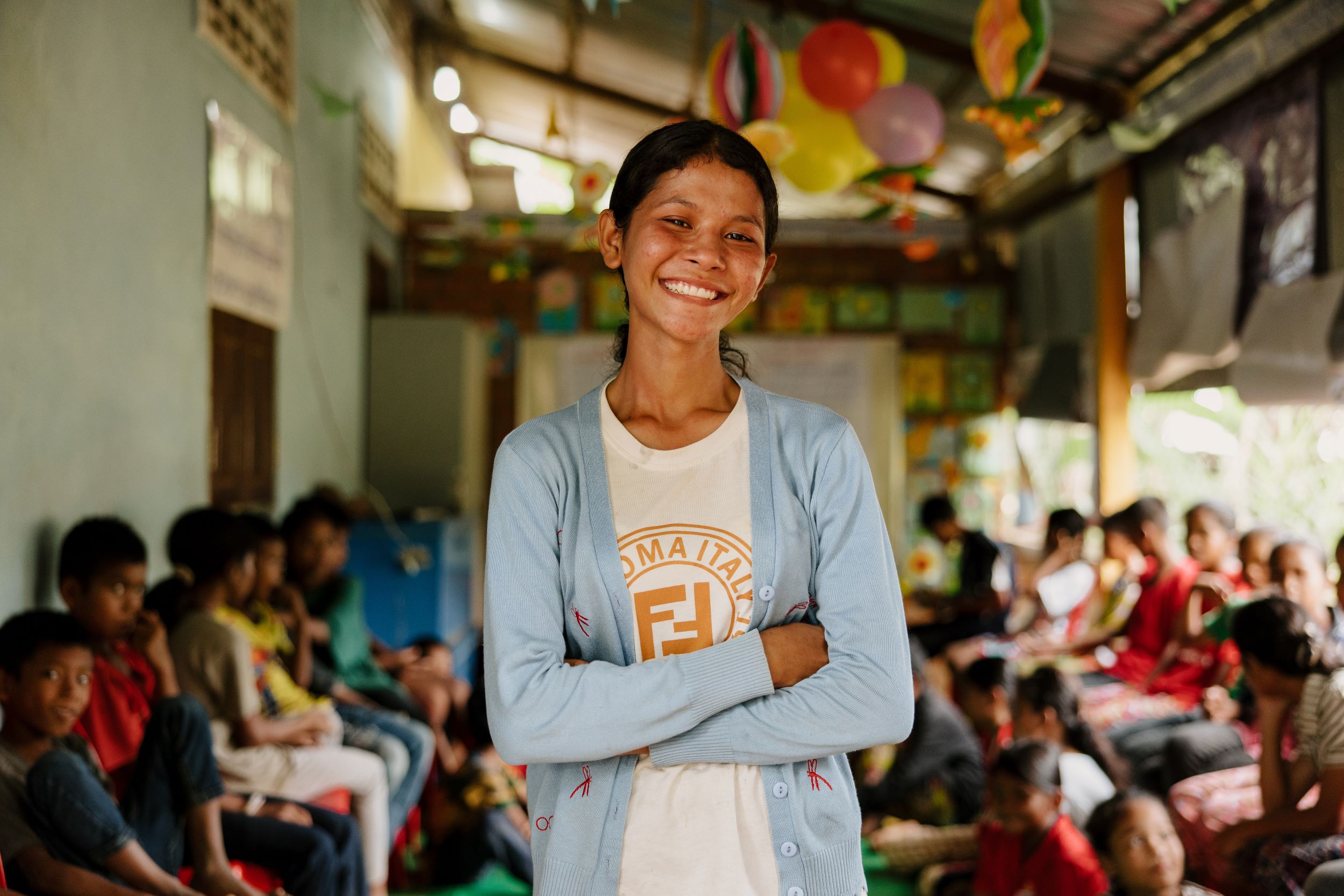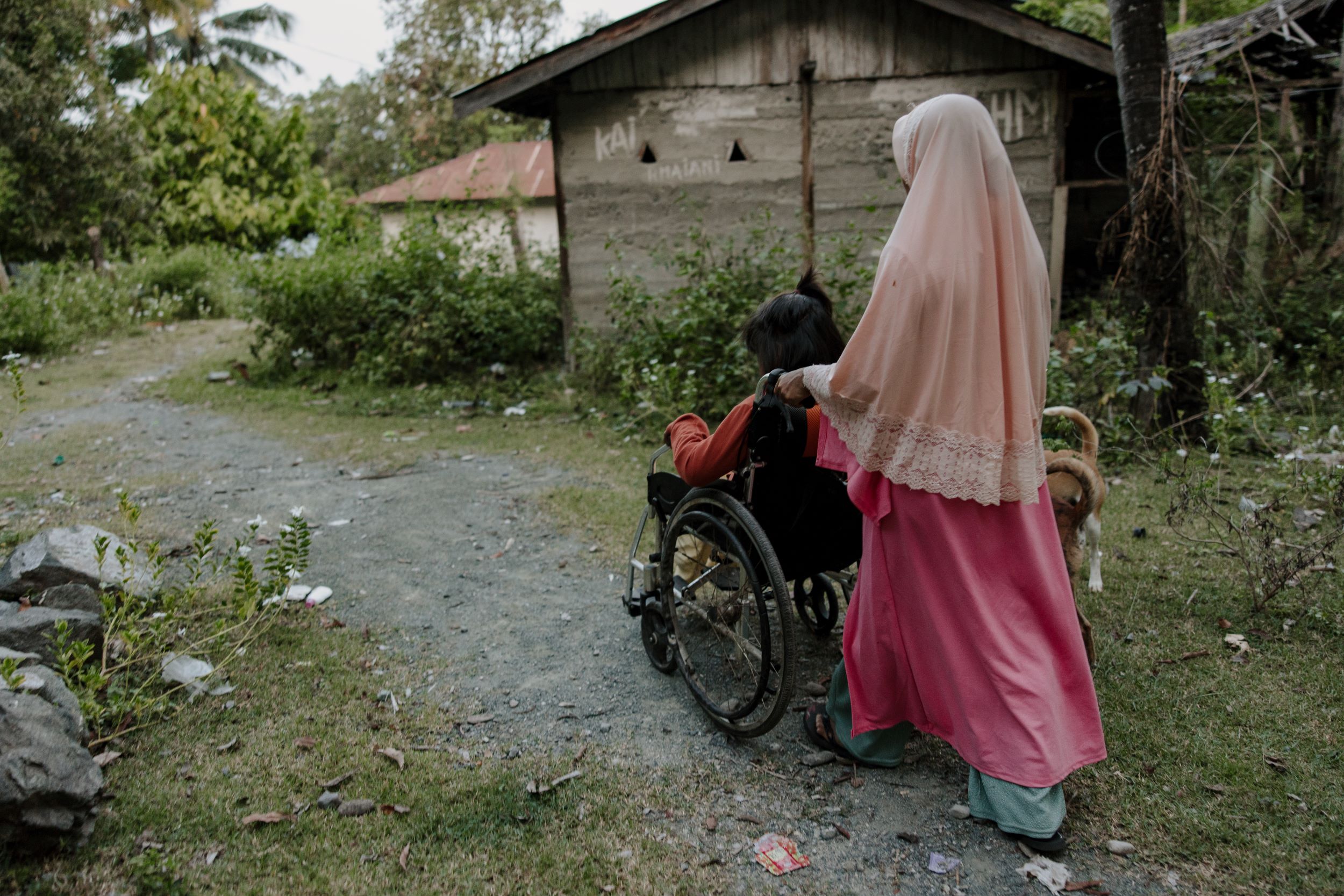
Every girl deserves aProtecting girls from abuse
Join World Vision as we fight for her rights.
Warning: the following story contains mention of rape and abuse that may be distressing to readers. Names have been changed to protect identities.
Every girl deserves to live a life free from rape, abuse, and violence – it’s her right.
This International Day of the Girl, we turn our minds to girls who have faced abuse – to girls like Heda.
Though Heda, now 14, has experienced an unimaginable depth of mistreatment and cruelty, she is not bitter. She laughs and hugs World Vision staff when they come to visit. It’s the highlight of her day, which can be long and lonely while her mum is at work.
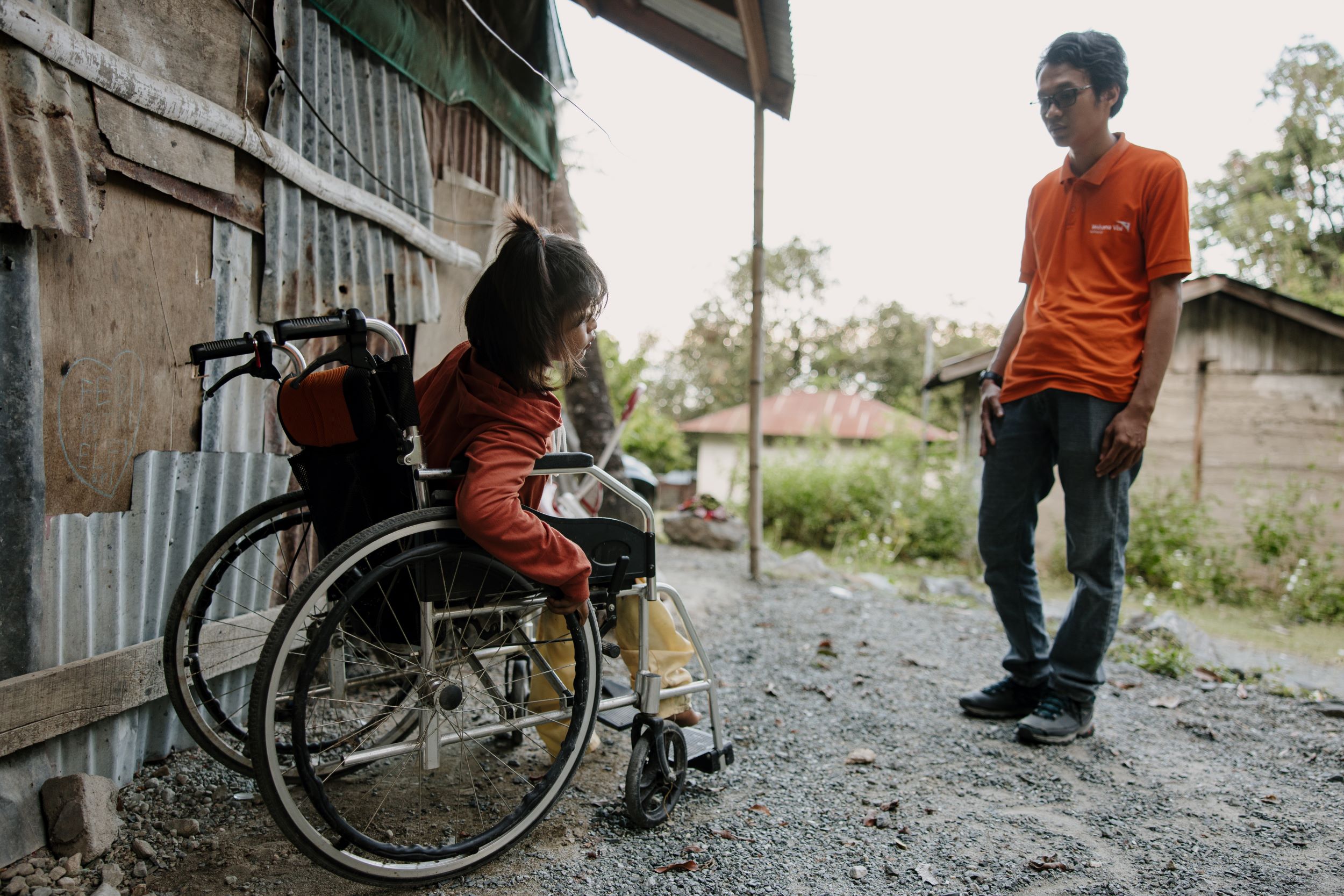
Isolation
Heda’s abuse began when she was aged just nine.
Living with a disability, Heda was alone and housebound while her mother, Desi, went out to work – something she had to do to put food on the table.
Living in a small patched together house, the two had little in the way of support. Heda’s father was not around to help, having left shortly after learning his child would not have a “normal” life. And as Heda grew and her disability becoming more obvious, Desi found herself increasingly isolated and alone.
“Heda only stays in the house,” explains Desi. “She [has to] urinate here on the floor. Later, when I get home, I clean it up. It’s hard for me to go to work [and leave her] but my husband is not here. I’m the only one who works and earns money to buy rice and [what we] need.”
A mother’s nightmare
Desi worried about Heda being lonely and uncared for all day. But she never dreamed of the much darker danger her daughter faced.
Heda was just nine when the first man came into the house and raped her. In the following weeks, another four men did the same. After the fifth time, Heda clung to her mother when she was leaving for work, crying and shrieking that she didn’t want to live there anymore. In horror, Desi discovered what had happened.
“She didn’t dare tell me straight away out of fear,” Desi weeps.
Several of the perpetrators were Heda’s older cousins, sons of Desi’s brother, the community leader.
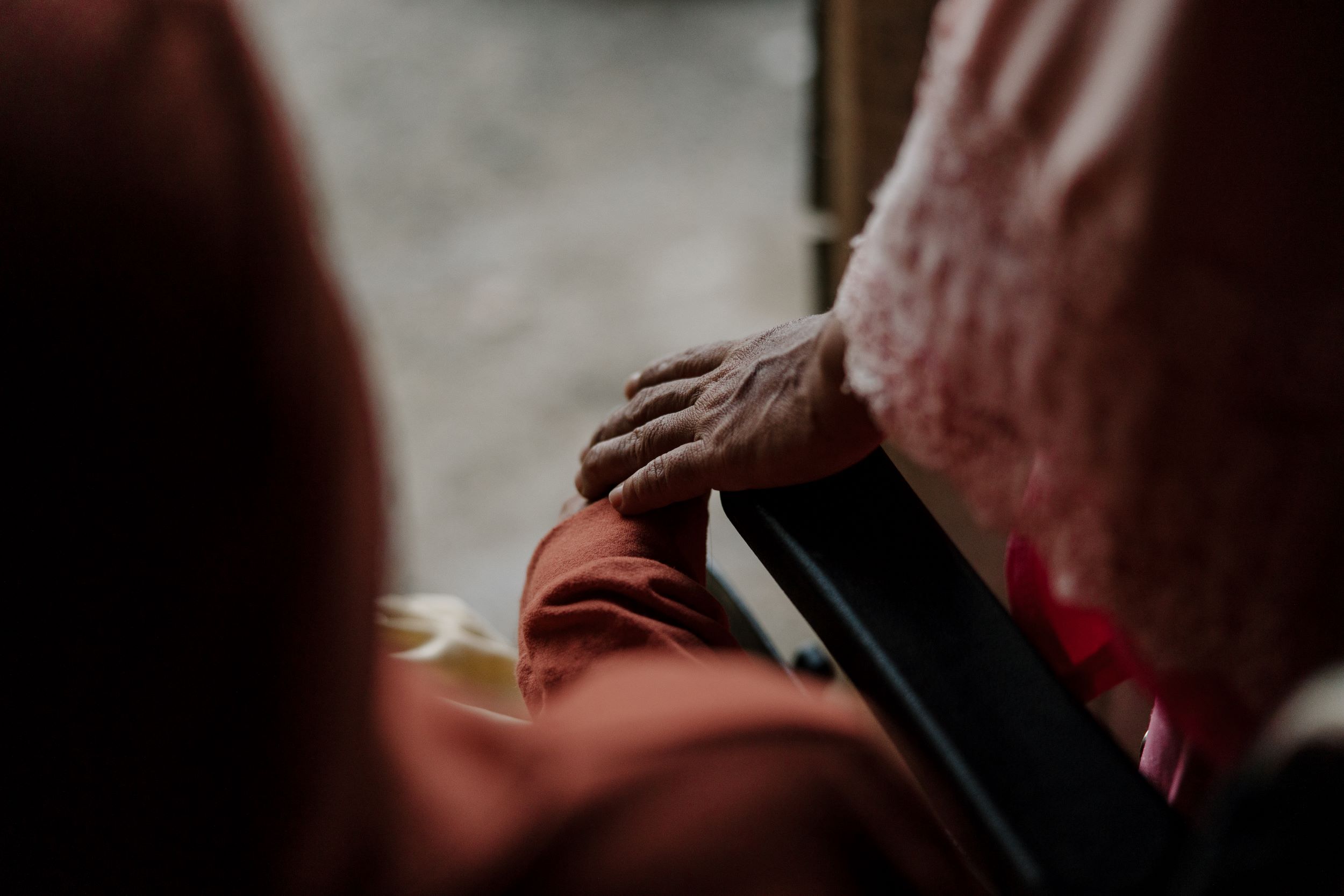
Seeking help
Desi knew World Vision was working in the community, so she asked a community volunteer for help.
“The volunteer reported there was a child who had been sexually abused. It made my heart so sad,” remembers Frengky Toga, a World Vision Sponsorship Officer. “We immediately visited her house and helped her to report what [had happened] to the police.”
The police interviewed Heda and took a statement from Desi. But Desi’s brother was angry and told her to stop making trouble. A medical examination proved Heda had been abused and the police sent a formal request for the accused men to attend interview, but the request was ignored and the case dropped. Desi was devastated, but there was nothing she could do.
But Desi and Heda were not alone. World Vision connected them with government services that could help her meet Heda’s needs, build a safer house, and tap into new income-earning opportunities.
A local government agency continues to closely monitor Heda’s situation and works with World Vision to ensure she is cared for.
“It is their right to have the support of the government system,” World Vision’s local Programme Manager Naysa Masela explains. “We are helping them to access that right.”
At the same time, Child Sponsorship is working with the whole community in Heda’s neighbourhood – from parents to faith leaders – to stamp out violence and create a safer place for the children to grow up in.
“Now we are also working to help the child protection system work better so that parents are more protective and understand their role in positive parenting and protecting children from threats,” Naysa explains.
Today, Desi is taking action to protect Heda and do what she can to help make sure no other children ever live through the same horror.
“Because of what happened, I have a passion to protect my child and also other children,” she says.
Promoting child rights
Desi has joined forces with the World Vision Child Sponsorship programme to share Heda’s story with community leaders through special information sessions. This is opening their eyes to the dangers that children face in their own neighbourhood, and inspiring them to build a stronger community that protects children and understands children’s rights. These faith leaders are now part of a network of community volunteers, World Vision staff and government organisations looking out for Heda and other vulnerable children in the community to make sure they are safe.
Over time, these sessions – and the many other programmes that child sponsors support in Heda’s community – are changing the way that children, faith leaders, parents and others in the community look at children. Understanding their rights helps them see that girls and boys of all abilities are equal, precious and deserve to be protected.
The difference you can make
Changing social norms takes time but, together, we are changing the world that Heda lives in.
“Without sponsors, we could not do this kind of work,” says Naysa. “We are trying to change existing values, and that's why it takes so long to see change. But with sponsors’ support, we can now see some children … have the courage to speak out.”
Right now, girls all over the world are being forced into violent realities like child marriage, child labour, and abuse.
You can fight for the rights of a girl like Heda by sponsoring a girl today. Be part of something bigger that is creating greater change and making a long-lasting difference to her life.

